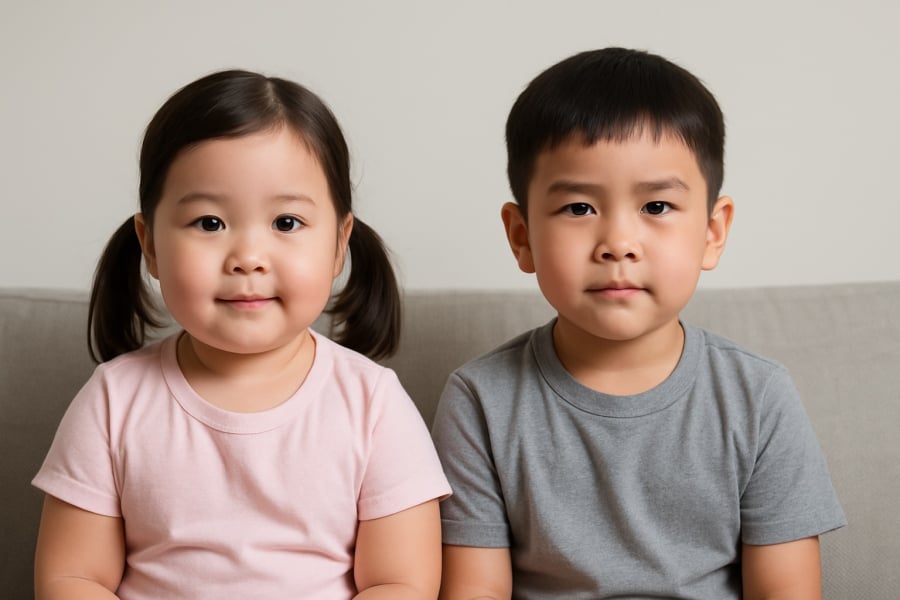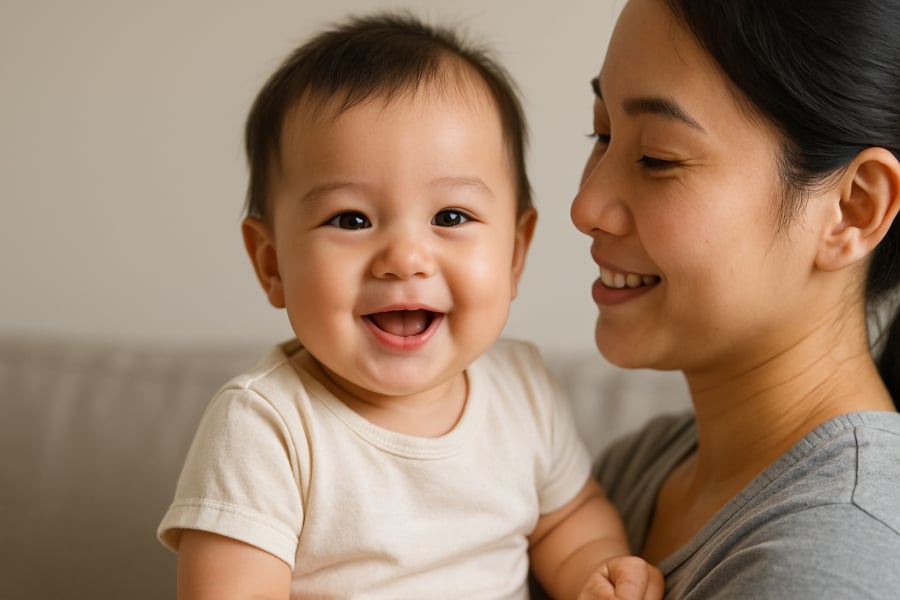Science Unveils the Link Between Facial Features and Personality
For decades, psychologists have been intrigued by the connection between physical appearance and personality. A UK study analyzed 40 male faces and found commonalities: individuals with longer faces, slightly upturned mouths, and wider-set eyes tended to have higher IQs and more positive personalities.
Not limited to humans, another study at Northumbria University (UK) on primates showed that species with wider faces tended to display more leadership qualities. Of course, these are just indicators and not absolute truths. But they do provide some evidence that facial structure can reflect certain aspects of one’s personality.
It’s important to note that children’s faces change as they grow. These changes reflect physical development and are accompanied by shifts in personality traits. As a result, many parents are curious about the shape of their child’s face and how it might influence their character.

Common Face Shapes in Children and Their Associated Personality Traits
Round Face – Adorable and Affectionate
Children with round faces often have a “baby face,” making them appear approachable and endearing. These children tend to be well-behaved, socially adaptable, and generally liked. However, because they give the impression of being “easy to talk to,” they may find it challenging to say no to others and can be too accommodating to peers. Parents should teach these children the skill of asserting boundaries to prevent them from being taken advantage of.
Square Face – Determined and Strong
A square face, also known as a rectangular face, conveys a sense of firmness and robustness. Children with this facial structure tend to be persistent, courageous, and inclined towards practical actions rather than daydreaming. Square-faced girls can maintain their gentleness while exuding strength. On the downside, these children may come across as somewhat inflexible and stiff in social interactions. Parents should encourage their children to be more pliable in their behavior while still upholding their values.
Diamond Face – Intelligent but Distant
Diamond-shaped faces are characterized by high cheekbones and distinct angles. Children with this facial structure are often intelligent, considering the bigger picture, attentive to details, and thoughtful in their decisions. However, their aloof exterior may make it challenging for peers to approach them. Additionally, these children tend not to explain their thoughts, leading to potential misunderstandings in communication. Parents should focus on teaching these children how to express themselves better to foster stronger connections with others.
Long Face – Cautious and Meticulous
Long, slender faces are often associated with maturity, clear plans, and a far-sighted vision. Children with long faces tend to be thoughtful and deliberate in their actions, rarely acting impulsively. On the downside, they may become overly perfectionistic, leading to rigidity or reclusiveness. Parents should expose these children to diverse experiences and encourage them to challenge themselves to develop greater flexibility.

The Role of Genetics and Environment in Shaping Personality
Numerous studies in genetics suggest that personality can be influenced by parental genes. However, genes are not the sole factor. A mother’s emotions during pregnancy, the child’s environment, parenting styles, and family dynamics all contribute significantly to the formation of their personality.
A study published in the journal Science indicated that genetic variations might be associated with violent behavior. Nonetheless, the scientists emphasized that familial love and education remain the most critical factors.
For instance, a child with a competitive nature can be guided by their parents to channel this trait positively. However, if left unchecked, this same trait can lead to envy, comparison, and the pursuit of misguided paths to achieve their goals.
Parents Hold the Key to Shaping Their Child’s Personality
While it’s intriguing to consider the potential link between a child’s face and their personality, it’s essential to remember that these are just speculative hints. What truly matters is the nurturing and guidance provided by parents. A warm and loving family, where parents listen and support each other, is more likely to raise optimistic, confident, and compassionate children. Conversely, a tense and discordant home can leave emotional scars on a child’s psyche.
In conclusion, while a child’s face may offer subtle hints about their personality, it is the love, education, and direction provided by their caregivers that predominantly shape their future selves. So, do you believe that a child’s face can truly reflect their personality?






























